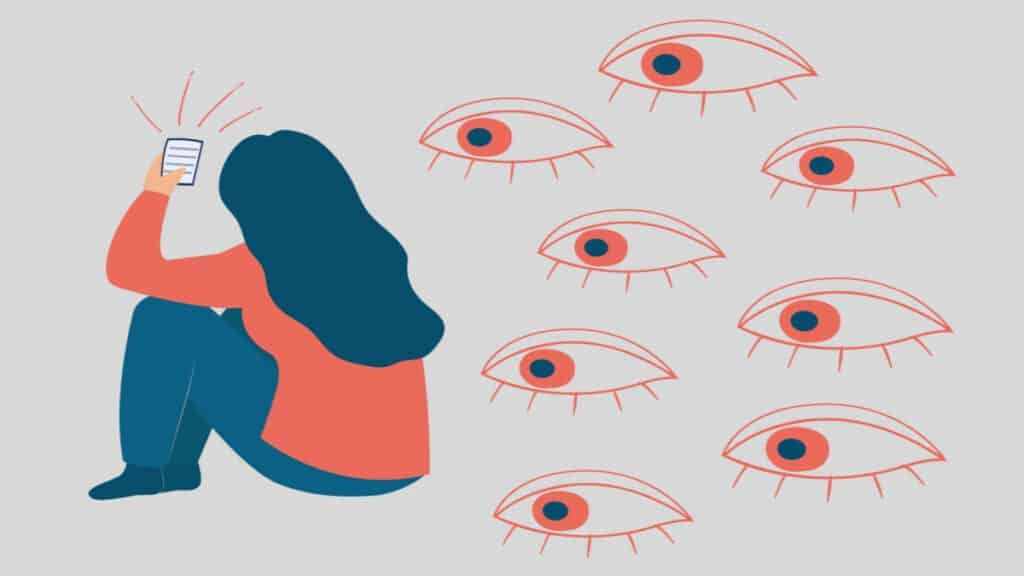Abusive Spyware Ban: No Press Freedom Without Journalist Safety
Rand Hammoud / May 3, 2023Rand Hammoud is a Surveillance Campaigner at Access Now.
Spyware is one of the most substantial digital threats to freedom of the press globally. Discussions around regulating or limiting its sale have not translated into enough concrete action, as its proliferation continues under democratic and authoritarian governments alike. Meanwhile, evidence of the abuses of certain technologies and the negligence of surveillance tech vendors continues to pile up. Yet, as we continue to see illegal hacking exposed — often by the targeted journalists themselves — suppliers keep putting their profit margins first, and continue to sell to dictators and others who have a long standing record of human rights abuses.
Research by groups such as the Citizen Lab, Amnesty International, Access Now, and other civil society organizations has documented the abuse certain commercial spyware companies are enabling, demonstrating that they cannot be trusted to employ this technology while upholding human rights under international law. The spyware sold by these companies is unsafe in any hands. Private actors cannot be left to their own devices with insufficient human rights policies and opaque ethics boards that fail us all. There is simply no other option — we must ban the abusive spyware companies and their technologies to ensure they can no longer profit from human rights abuse.
Every year on May 3, World Press Freedom Day, the international community, media organizations, civil society, and people from all walks of life celebrate the fundamental principles of press freedom, evaluate freedom of expression across the globe, pay tribute to journalists who have lost their lives in the exercise of their profession, and commit to defending media independence. This year, the international community must address invasive surveillance technology and its impact on expression, censorship, and personal safety.
Spyware is a weapon designed to attack press freedom and civic space. It’s time to take away the ammunition.
For years, civil society has been sounding the alarm on the human rights violations enabled by invasive spyware. As authorities cite national security as the pretext for using these tools to spy on and silence people, journalists are increasingly in their crosshairs. With the 2021 revelations of more than 180 journalists potentially targeted in 21 countries, it is clear spyware has become an increasingly powerful, yet hard to detect, tool in an arsenal aimed at crushing freedom of expression.
Invasive spyware gives customers — usually governments — all-inclusive access to targets’ devices, and, effectively, the details of their lives and state of mind. Who they call, what they say, what sites they visit and when, is all available to the perpetrators. Even the most secure and encrypted communication platforms, essential for the confidentiality and integrity of journalistic work and sources, are rendered useless. The surveillance of journalists, their sources, associates, and family members, puts them at heightened risk of harm, persecution, and prosecution. This digital equipment does real-life, irreversible damage to real people.
From El Salvador to India, Azerbaijan to Hungary and Uganda, attackers are using invasive spyware to gag the journalists and media workers who expose human rights violations and uncover corruption. If we continue to see this technology sold and deployed with impunity, journalists, media workers, and journalism will never be safe.
This type of surveillance goes beyond the violation of privacy. It puts people who already face reprisals, harassment, intimidation, and persecution for their work in even greater peril. Women and non-binary persons suffer targeted attacks that are particularly egregious and traumatizing when combined with harassment and smear campaigns designed to shame them into silence.
But it doesn’t end there. When journalists are forced to flee their own countries to seek safety from these attacks, spyware allows the perpetrators to follow them wherever they go, enabling transnational repression. This, in turn, creates a profound global chilling effect and cultivates an environment of self-censorship, hindering ongoing investigations, and ultimately undermining the role of the press as the fourth pillar of democracy.
Building on public and private efforts to curb the proliferation and use of spyware, Access Now and 70 organizations, journalists, and independent experts are today calling on governments to implement an immediate moratorium on the export, sale, transfer, servicing, and use of targeted digital surveillance technologies. Moreover, we are demanding a ban on commercial spyware where there is evidence that it enables or facilitates human rights abuses, as well as sanctions on the companies selling these dangerous products and services.
As the international community gathers to celebrate World Press Freedom Day, global leaders must recognize that as they reaffirm protections for journalists, spyware can no longer be a separate conversation to upholding free press. The ongoing, unregulated use of invasive spyware technology is killing journalism. A genuine commitment to press freedom requires immediate, bold action — starting with a ban on abusive commercial spyware.
Authors

